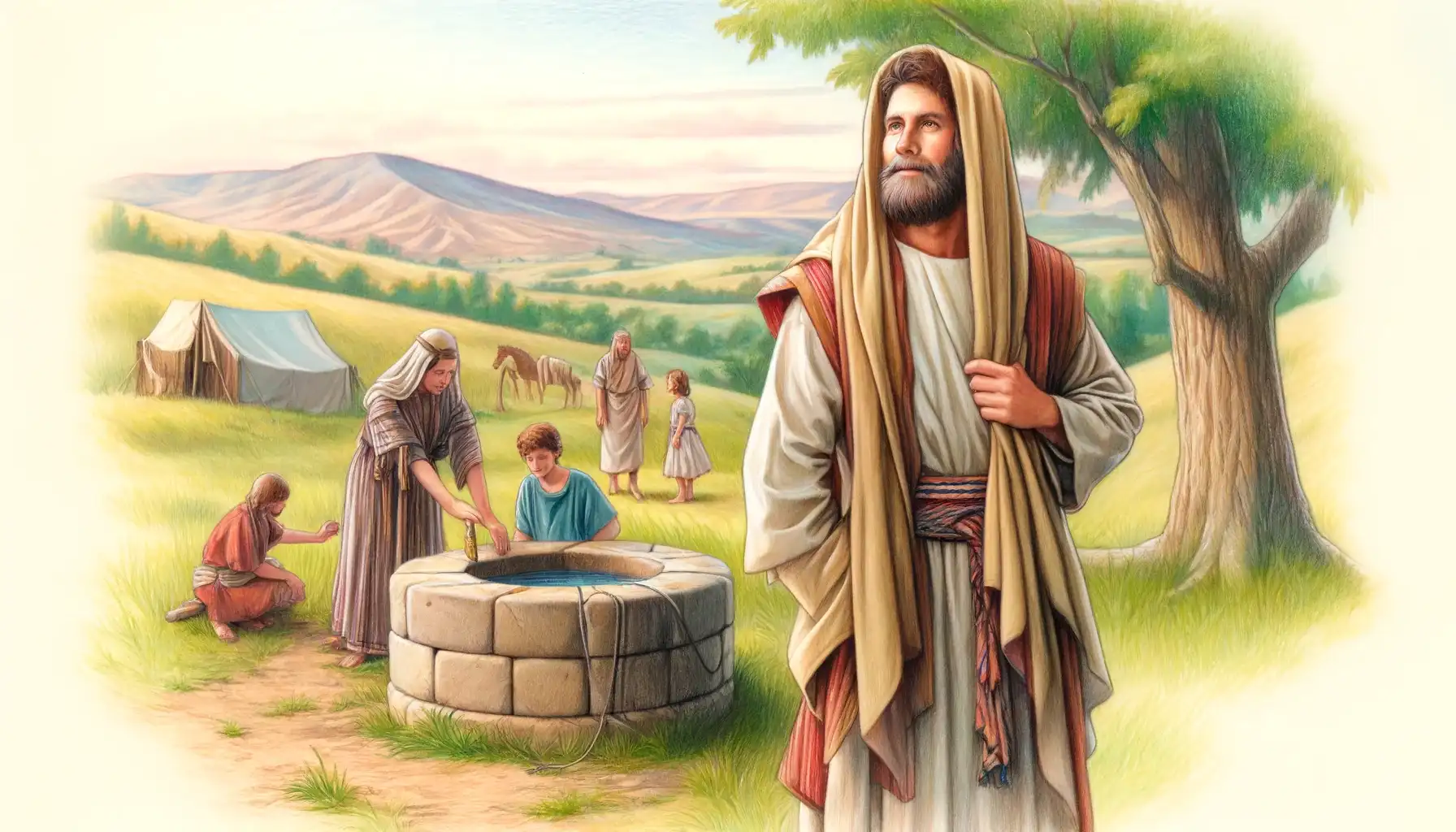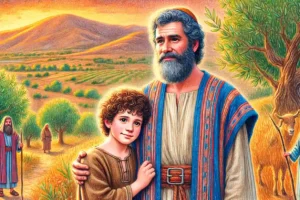
Isaac: Son of Abraham and Sarah, Father of Jacob and Esau
Isaac, the son of Abraham and Sarah, is a pivotal figure in the Hebrew Bible. Known for his miraculous birth, near-sacrifice, and role as the father of Jacob and Esau, Isaac’s life underscores themes of faith, covenant, and divine promise.
Quick Facts
- Miraculous Birth: Isaac was born to Abraham and Sarah in their old age, fulfilling God’s promise.
- Binding of Isaac: He was nearly sacrificed by Abraham in a test of faith, but God intervened.
- Marriage to Rebekah: Isaac married Rebekah, who was chosen for him by Abraham’s servant.
- Father of Twins: Isaac and Rebekah had twin sons, Jacob and Esau, who became the patriarchs of two nations.
- Covenant Continuation: Isaac carried forward the Abrahamic covenant, receiving God’s promises of land and descendants.
- Life in Canaan: He lived most of his life in Canaan, experiencing both prosperity and conflict.
- Legacy: Isaac is considered one of the patriarchs of Israel, and his story is foundational in Jewish, Christian, and Islamic traditions.
Miraculous Birth
Isaac’s birth was a miracle, occurring when his parents, Abraham and Sarah, were well beyond childbearing age. God had promised Abraham that he would be the father of a great nation, and Isaac’s birth was the fulfillment of that promise (Genesis 21:1-3). His name, meaning “he laughs,” reflects Sarah’s initial reaction to the promise of his birth (Genesis 18:12-14).
The Binding of Isaac
One of the most profound events in Isaac’s life is the Akedah, or the Binding of Isaac (Genesis 22:1-19). God tested Abraham by instructing him to offer Isaac as a sacrifice on Mount Moriah. Abraham obediently prepared to sacrifice his son, but God intervened at the last moment, providing a ram as a substitute. This event is seen as a test of Abraham’s faith and foreshadows the concept of substitutionary atonement in Christian theology.
Marriage to Rebekah
Isaac’s marriage to Rebekah was orchestrated by Abraham’s servant, who was sent to find a suitable wife from Abraham’s kin (Genesis 24). Rebekah’s willingness to leave her family and marry Isaac without hesitation demonstrated her faith and obedience. Their union was blessed by God, and they became the parents of two significant patriarchs, Jacob and Esau.
Isaac and Rebekah’s twin sons, Jacob and Esau, each played crucial roles in biblical history (Genesis 25:21-26). Esau, the elder, was a skilled hunter and favored by Isaac, while Jacob, the younger, was more domestically inclined and favored by Rebekah. The struggle between the brothers, including Jacob’s deception to receive Isaac’s blessing meant for Esau (Genesis 27), highlights themes of destiny, family conflict, and divine sovereignty.
Continuation of the Covenant
God reaffirmed the Abrahamic covenant with Isaac, promising him numerous descendants and the land of Canaan (Genesis 26:2-5). Isaac’s life was marked by his faithfulness to this covenant, despite various challenges, including conflicts over water rights with the Philistines (Genesis 26:12-22).
Life in Canaan
Isaac lived most of his life in Canaan, where he experienced both prosperity and challenges. He faced famine, dealt with disputes over wells, and navigated relationships with neighboring peoples. His faith and obedience to God were consistent themes throughout his life.
Legacy
Isaac’s legacy is integral to the history of Israel. He is one of the three patriarchs, alongside Abraham and Jacob, who are foundational to Jewish identity and faith. In Christian tradition, Isaac’s near-sacrifice is seen as a foreshadowing of Jesus Christ’s sacrificial death. In Islamic tradition, Isaac is recognized as a prophet and a key figure in the lineage of Muhammad.
Theological Themes
Isaac’s story embodies several key theological themes:
- Faith and Obedience: Isaac’s life highlights the importance of faith and obedience to God’s commands.
- Divine Promise and Covenant: His story emphasizes the continuity of God’s promises through generations.
- Sacrifice and Substitution: The Binding of Isaac prefigures themes of sacrifice and substitution in salvation history.
Legacy and Impact
Isaac’s life and legacy have had a lasting impact on the Abrahamic faiths. His story is recounted in Jewish, Christian, and Islamic scriptures, each tradition drawing lessons from his faith, obedience, and role in God’s plan. Isaac’s experiences and the events surrounding his life continue to be subjects of theological reflection and inspiration.
Conclusion
Isaac, the son of Abraham and Sarah, played a crucial role in the continuation of the Abrahamic covenant. His miraculous birth, near-sacrifice, and role as the father of Jacob and Esau highlight themes of faith, obedience, and divine promise, making his story foundational to the Abrahamic religions.



